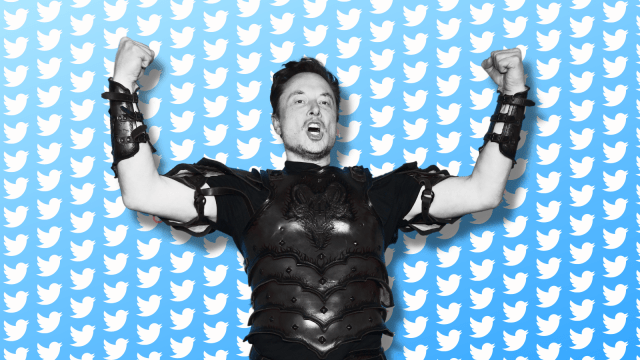In a nod to the U.S. State of the Union, Twitter CEO Elon Musk gave his own ‘State of Twitter’ in a surprise interview with the BBC on Tuesday evening, claiming that Twitter was now being run by his dog, Floki, and that he had only bought the social media company for $US44 billion because a judge was going to force him to do it, eliding the fact that he had agreed to do so in writing.
This week will mark the one-year anniversary of Musk’s first offer to buy Twitter in April of last year. Musk’s interview is one of the most extensive accounts he’s given about the company to the media, a frequent subject of his criticism and disdain, since he officially took over nearly six months ago. It covered a range of topics, from his work habits and Twitter’s mass layoffs to his current fight with the BBC and NPR over the platform’s “Government Funded Media” labels, which Musk said would be changed to “publicly-funded media” instead.
Click through to check out the biggest moments of the Twitter CEO’s interview with the BBC.
Twitter Is Now Being Run by Musk’s Dog, Floki
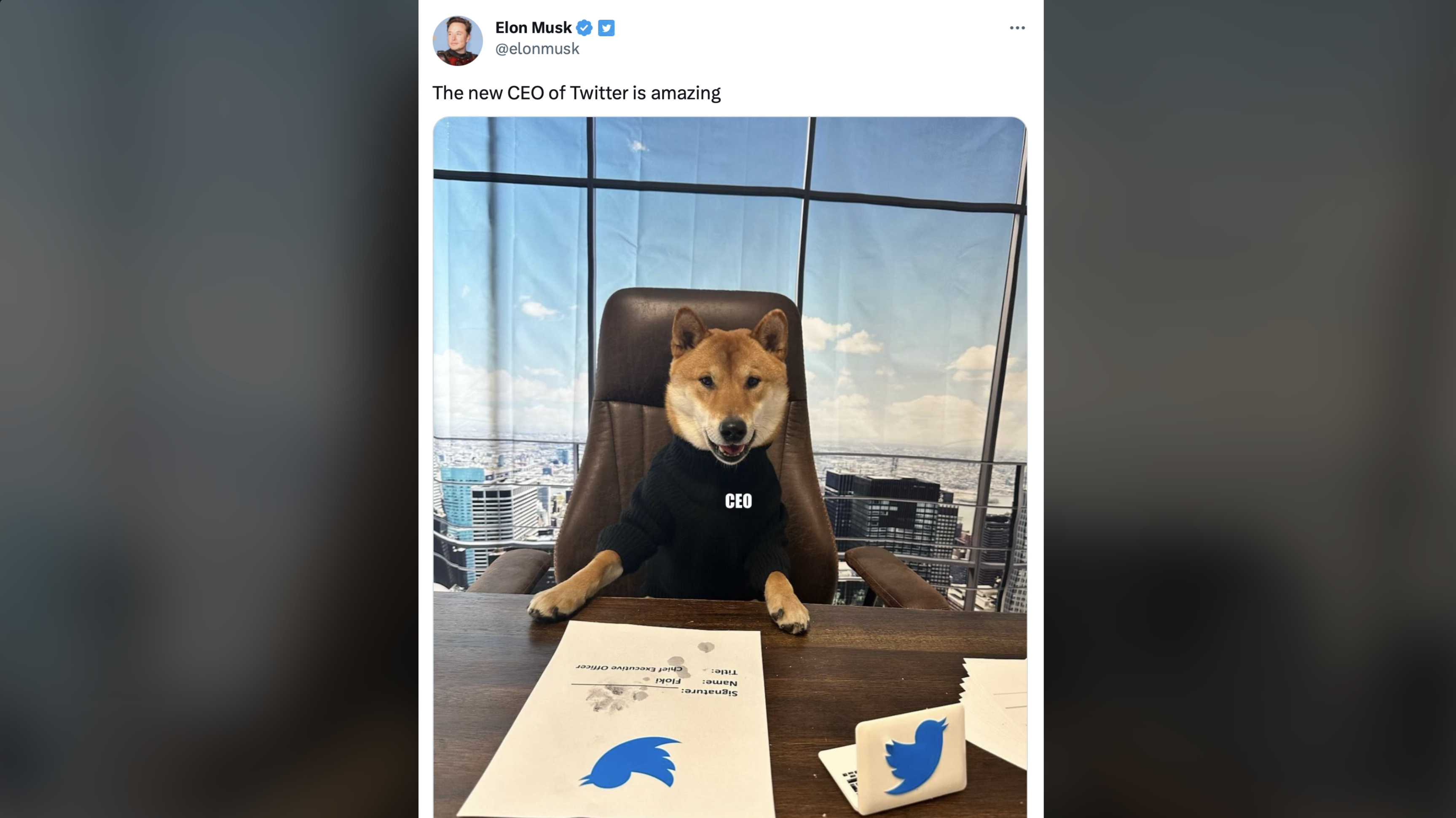
As CEO of SpaceX and Tesla, Musk was already a very busy person before buying Twitter. His obsession with the blue bird app and the time he spends running it has weighed on Tesla investors, who have basically begged him to pay more attention to the electric car company. In February, Musk said he would step down as Twitter CEO after another year.
According to Musk, he’s already fulfilled his promises of appointing another CEO.
“My dog, Floki, is the CEO,” Musk said in the interview with the BBC. “He’s taken over.”
Musk previously made a joke about Floki being Twitter’s CEO on Feb. 15.
Musk Sleeps on a Couch in Twitter’s Library
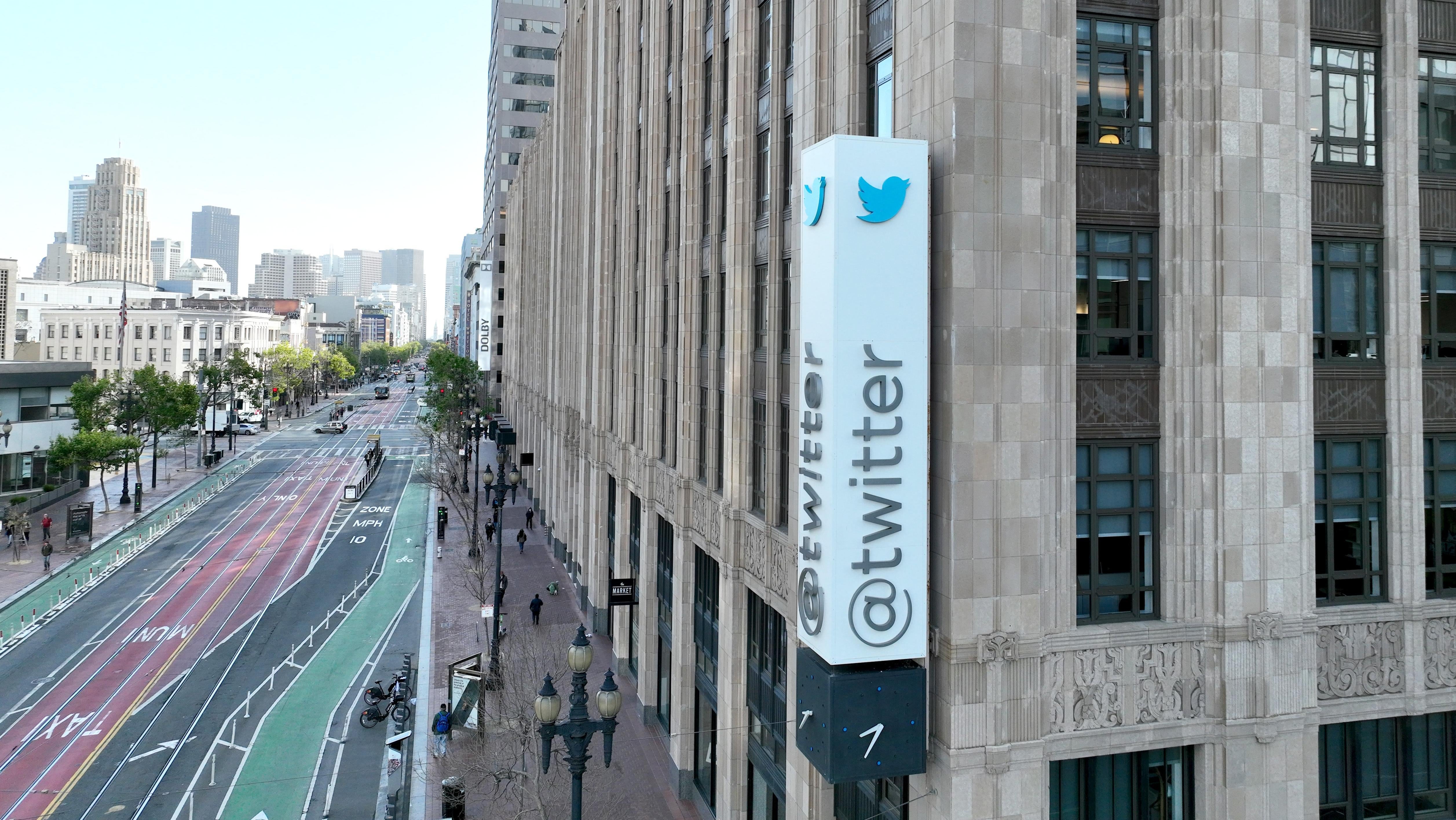
Musk can be somewhat of a workaholic and has a history of spending an inordinate amount amount of time at his companies during important times. The Twitter CEO has spoken about sleeping at Tesla’s factories, where he first slept on the floor but then moved to sleeping under his desk so that workers could see him during shift changes.
Musk told the BBC that he sometimes sleeps in the office at Twitter’s San Francisco headquarters.
“There’s a library that nobody goes to on the seventh floor, and there’s a couch there. I sleep there sometimes,” he said.
Musk Says He Only Bought Twitter Because a Judge Was Going to Force Him to Do It (He Signed an Agreement to Buy It Before That)
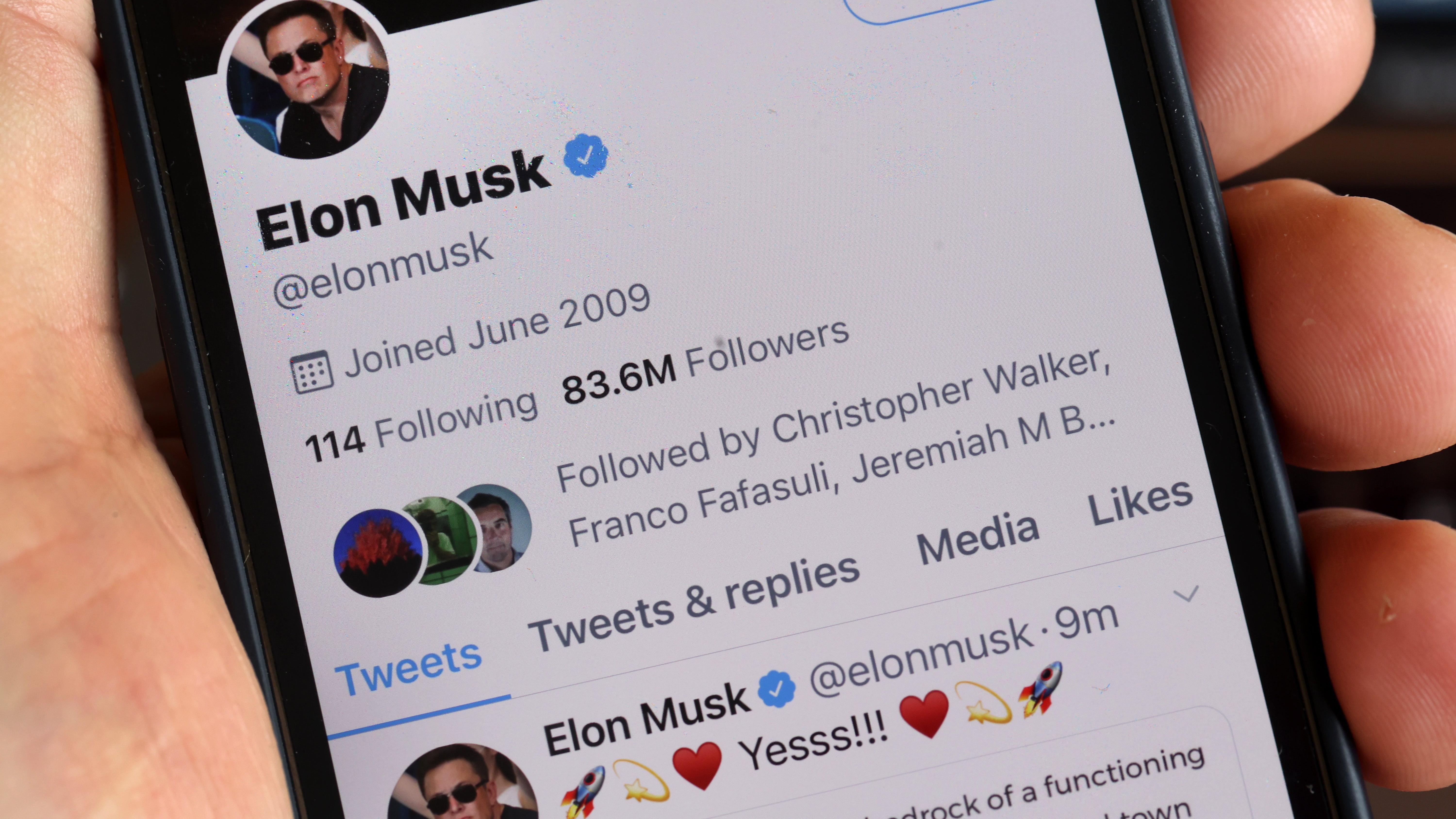
Musk spent most of 2022 trying to get out of the $US44 ($61) billion deal to buy Twitter, which promptly got him sued. Although he never said so publicly, it was widely assumed that Musk closed the deal to buy Twitter in October because he determined that a court was going to force him to do so, anyway.
The Twitter CEO confirmed as much in his chat with the BBC, where he compared the experience of buying the social media platform to a “soap opera” that was “quite entertaining.”
“They were like, ‘hell no, you can’t buy Twitter. We’d rather die. We’d rather chew on cyanide before being bought.’ That was their initial response,” Musk said. “And then they said, ‘No, you must buy us.’ Gun to the head. ‘You have to buy us.’ I’m like, ‘Are you the same people who said you’d rather die than than be bought?’ Doesn’t that seem odd?”
Musk Admits That Shutting Down Twitter’s Sacramento Service Centre Was ‘Catastrophic’
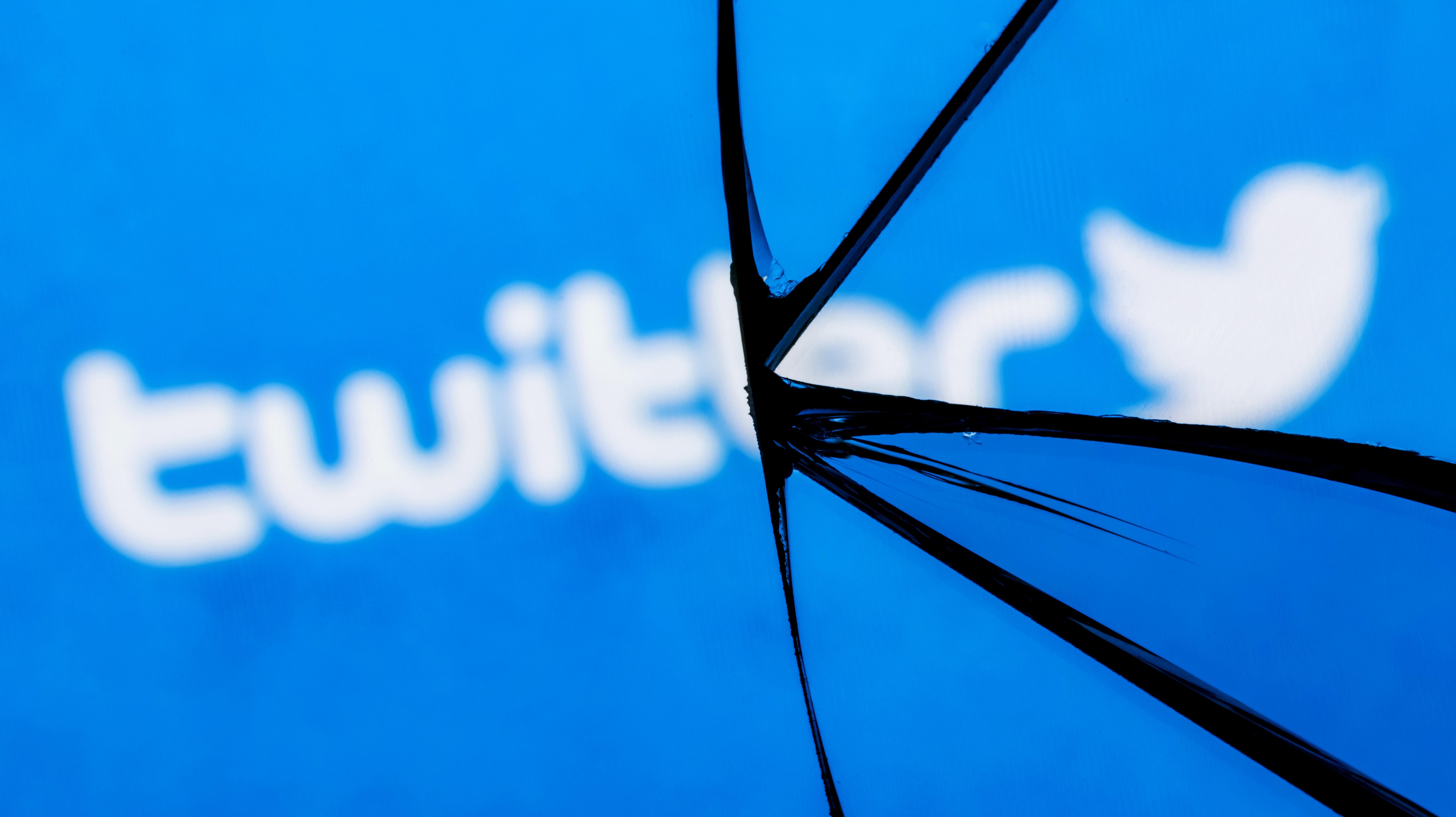
It’s safe to say that Musk has taken on a “know-it-all” approach when it comes to running Twitter. Back in December, he declared that Twitter’s Sacramento data centre was redundant and told hesitant employees to close it down to save money. The decision led to an outage.
Musk told the BBC that shutting down the data centre in late December was one of the hardest things he’s had to do as Twitter boss.
“I thought the server centres were redundant but there were in fact a lot of things that were hardcoded to this one server centre. And so we shut it down, it was quite catastrophic,” the Twitter CEO said. “We lost a lot of functionality and we sort of really rushed to put it back.”
After Mass Layoffs, Musk Says There Are Now About 1,500 People at Twitter
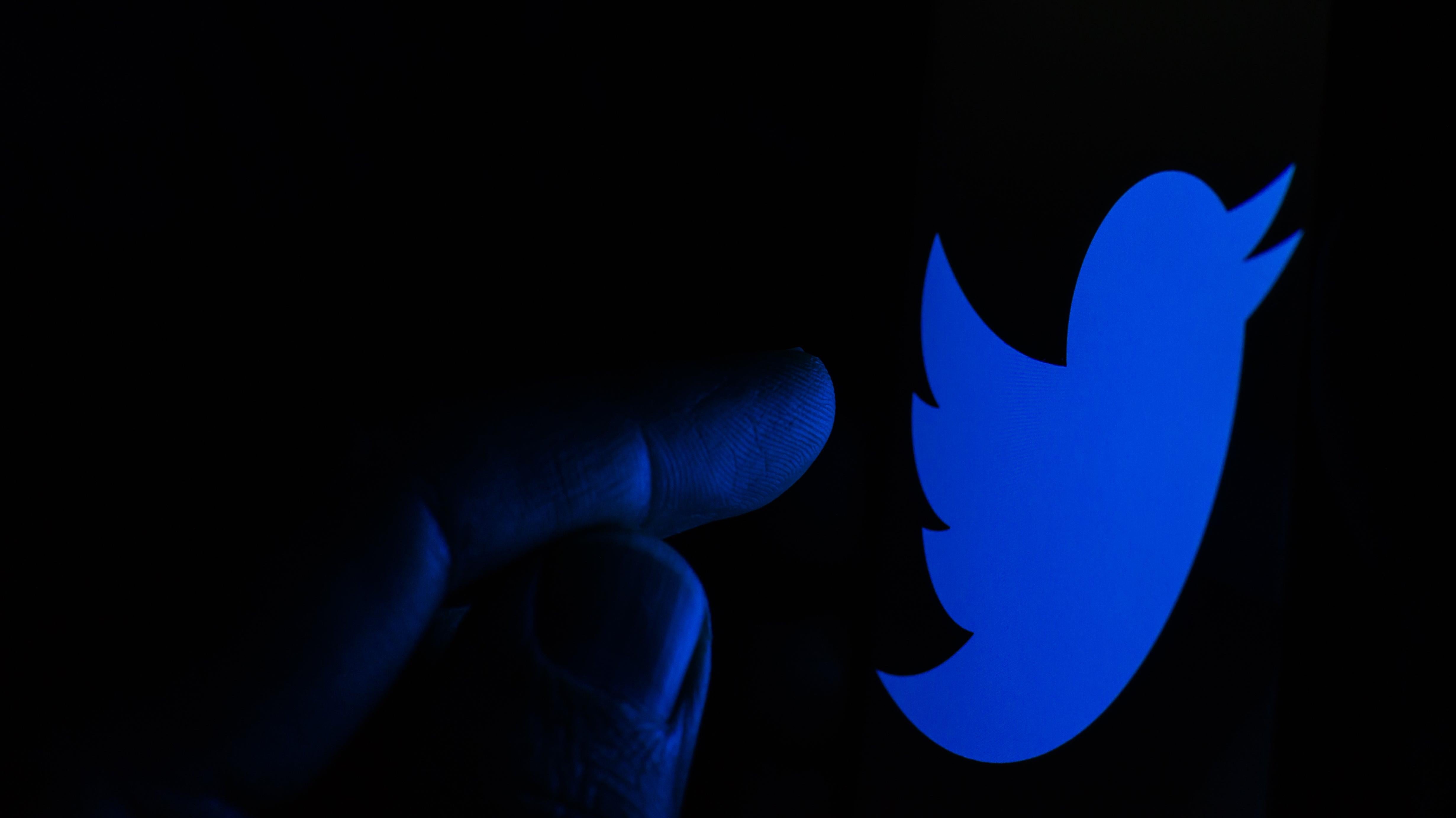
One of the biggest and most unfortunate stories coming out of Twitter in recent months has been the company’s mass layoffs, which forced thousands from the company, many of whom had been there for years. According to Musk, Twitter had just under 8,000 employees when he took over in October and currently had about 1,500.
The Twitter CEO told the BBC letting go of that many people had been hard.
“No fun at all. It’s painful,” Musk said.
Musk Says He’s Often Tweeted Things He Shouldn’t Have
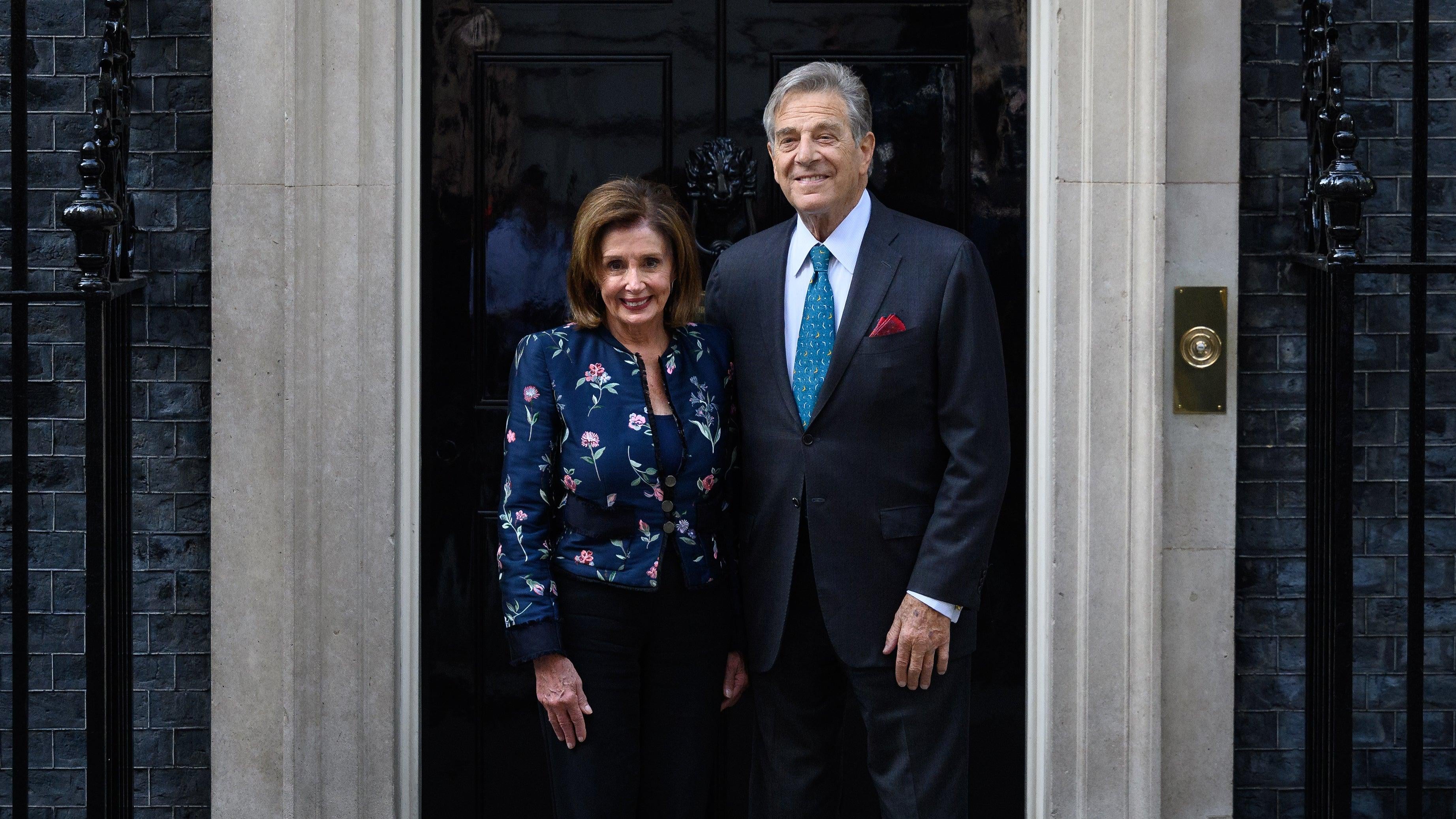
When asked about his tweets about Paul Pelosi, the husband of former House Speaker Nancy Pelosi who was violently bludgeoned on the head with a hammer by an intruder last year, Musk admitted that he’s often tweeted things he shouldn’t have. The Twitter CEO amplified a baseless conspiracy theory that stated Paul Pelosi was a homosexual and fighting with a male escort when he was assaulted. Musk issued a brief apology for his tweets this past January.
“I mean, have I shot myself in the foot with tweets multiple times? Yes. I need bulletproof shoes at this point,” Musk said. “I think I should not tweet after 3 a.m.”
Musk Says He Will Change NPR and the BBC’s “Government Funded Media” Labels to “Publicly-Funded Media”
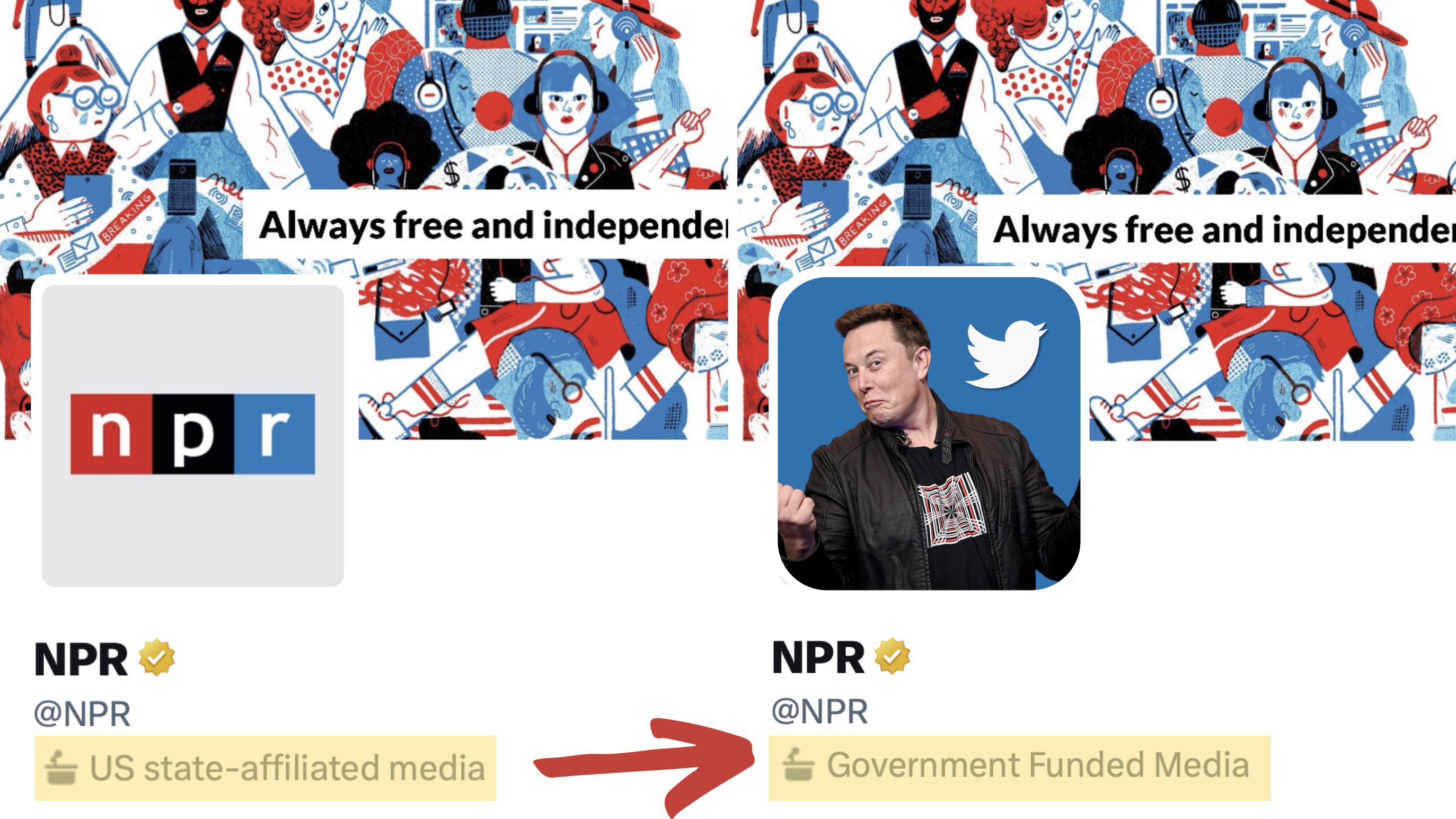
On the subject of Twitter’s new labels for independent media outlets that receive some funding from the government or the public, Musk told the BBC that he would change the labels once more.
“We’re adjusting that we’re able to be publicly-funded, which I think is perhaps not too objectionable,” Musk said. “We’re trying to be accurate.”
Musk has been fighting with the BBC and American outlets like NPR, PBC, and Voice of America News about the labels over the last week. The debacle began when, seemingly out of the blue, Twitter affixed NPR’s Twitter profile with a “state-affiliated media” label, which is the same label used for established state propaganda outlets, like China’s like Xinhua News or Russia’s RT.
NPR said in a statement on Wednesday morning that its accounts would no longer be active on Twitter.
Musk Said His Father Never Owned an Emerald Mine (He Said the Opposite in a 2014 Interview)
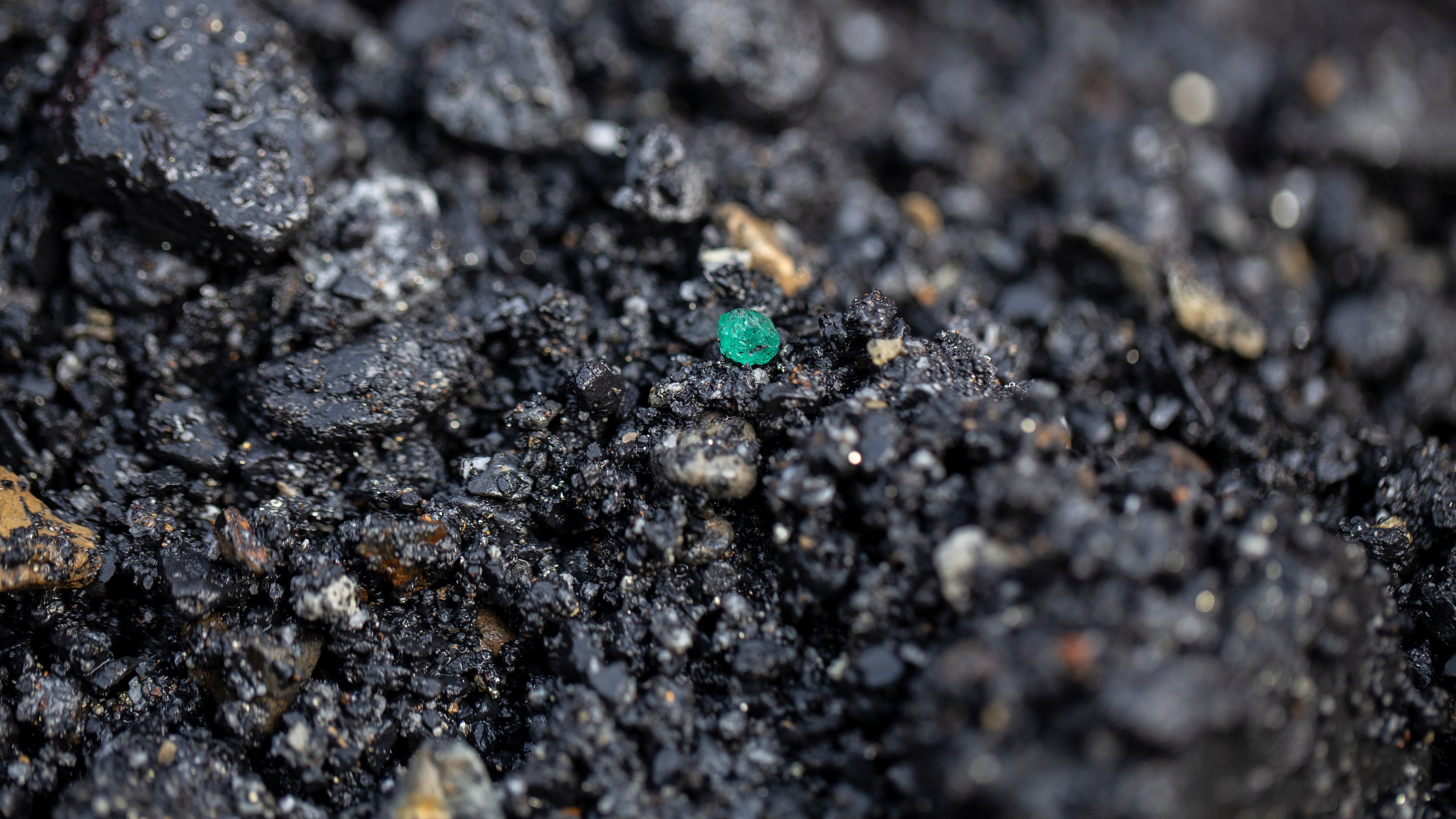
One of Musk’s biggest annoyances over the years has been over people hounding him about his father’s shares in purported emerald mine. However, it was Musk himself who told Forbes about the mine in 2014, even though the billionaire denies its existence today. (For some reason, the article is no longer live on Forbes’ website but can be viewed via the Internet Archive.)
“I’d like to see a picture of this alleged emerald mine,” Musk told the BBC. “He never owned an emerald mine, this is total bullshit.”
Musk said Twitter Tried to Turn One of Its Buildings Into a Homeless Shelter
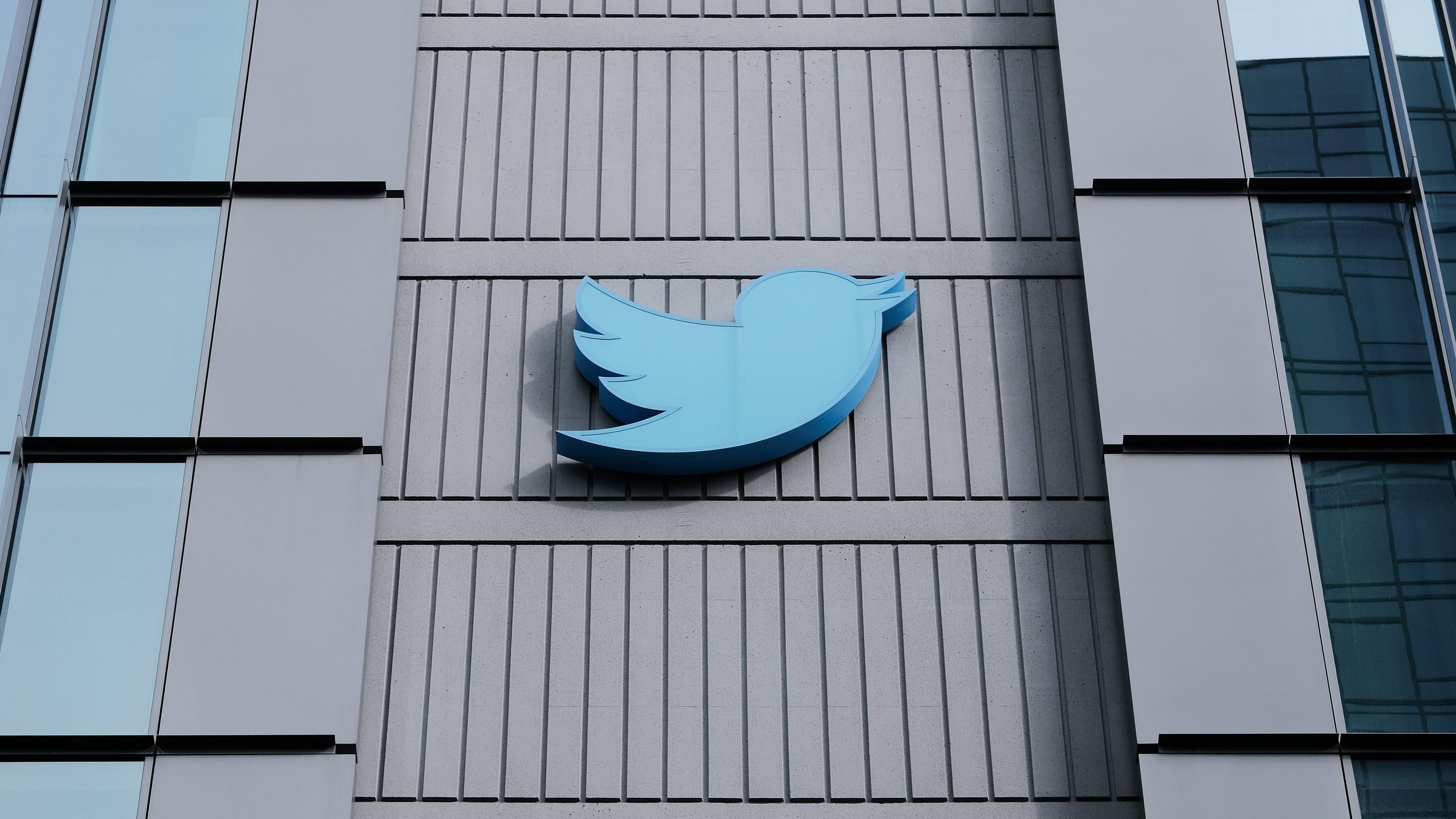
Musk told the BBC that he had tried to turn one of Twitter’s buildings in San Francisco into a homeless shelter but that the building’s owner rejected the idea.
“We’re only using one of the buildings, and so the other building could be a homeless shelter,” adding that Twitter would convert the building into a shelter “right now.”
According to Musk, this is the same building owner that would’t let him take the “W” off of the Twitter sign, which he wanted to read “Titter.” It’s also the same building owner who is currently suing Twitter over $US6.7 ($9) million in unpaid rent.
Musk admitted that he had no official plan for the shelter, stating, “We could just let people stay there. It’s nice. They could bring their stuff, bring their tent, or whatever.”
Elon Said He ‘Delighted’ in Taking Away the New York Times Verified Badge
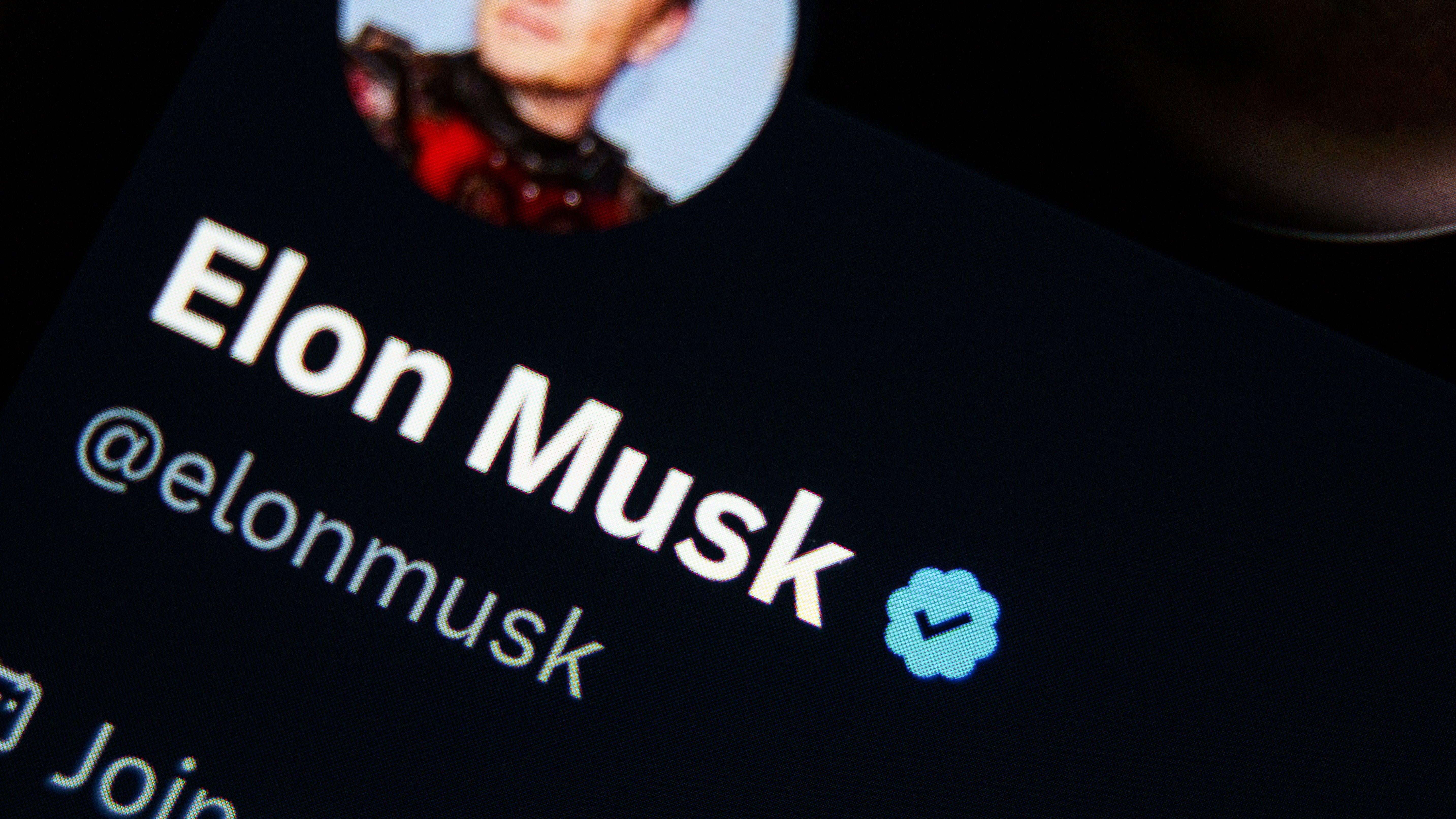
Finally, Musk addressed another big drama that’s engulfed Twitter in recent months: legacy blue verified checkmarks.
Musk previously said accounts with legacy verified checkmarks had until April 1 to pay up or lose their checkmark. After one user told him the New York Times had already said it would not pay, Musk took the organisation’s checkmark away.
“I must confess to some delight in removing the verified batch from The New York Times. That was great,” Musk said. “Anyway, they’re still alive and well, so they’re doing fine.”
Although the April 1 deadline turned out not to be set in stone, Musk told the BBC that the new, supposedly firm deadline was on April 20 (or 4/20, a reference to weed).
“That number will never leave me,” Musk added.
